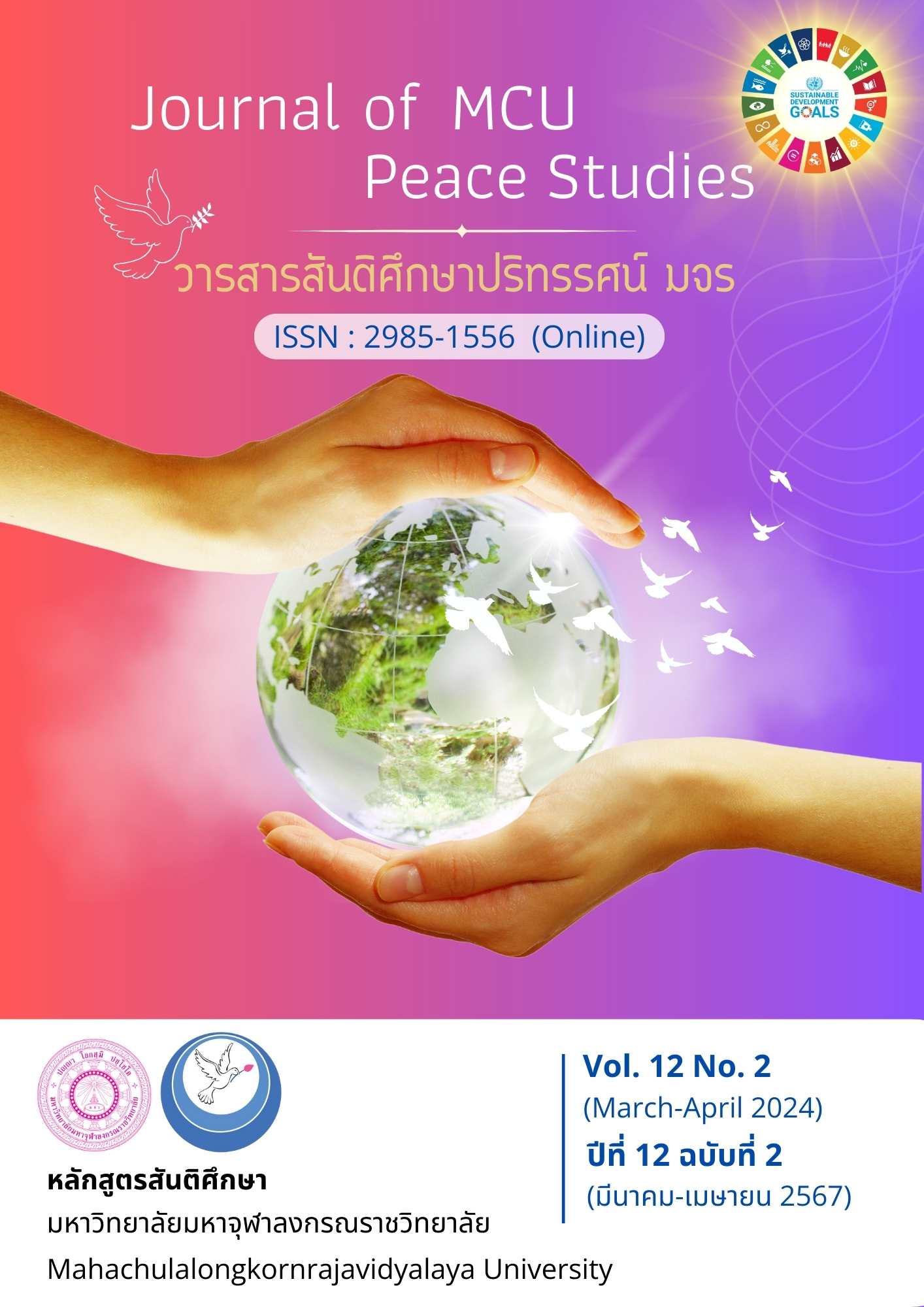Strengthening the Network of Buddhist Community Leaders by Buddhist Peaceful Means in the State of Maharashtra, India
Main Article Content
Abstract
The research article consisted of the following objectives: 1) to investigate context, problems, and requirements, as well as the Buddhist peaceful means conducive to the strengthening of Buddhist community leader network in Maharashtra, India; and 2) to develop the guidelines for strengthening the network of Buddhist community leaders in Maharashtra, India. The study used a participatory action research (PAR). The instruments used for the study were an in-depth interview with 19 key informants and a participatory action package for 15 local researchers from a network of Buddhist community leaders in Maharashtra, India. The obtained data were analyzed by inductive method.
From the study, the following results were found: 1) Although the Buddhist network in India is known to significant leaders after the rebirth of Buddhism by Dr. B. R. Ambedkar in 2499 BE, the need to strengthen it arises from the fact that, despite overcoming caste differences by becoming a Buddhist, many people still do not understand the fundamental teachings of Buddhism. The Sangha organizations, which serve as spiritual leaders of Buddhists, are insufficiently powerful, resulting in a lack of unity among Buddhist groups in mobilizing their work. The Buddhist peaceful means conducive to the strengthening of Buddhist community leader network are Brahmavihāra (the four sublime states of mind) referring to inner peace of leaders, Pāpaṇikadhamma referring to the Buddhist management for leaders, Sārāṇīyadhamma referring to affection and unity among leaders in order to strengthen Buddhist community network, and Apārihaniyadhamma referring to the strengthening of Buddhist leader network; and 2) A participatory action package for strengthening Buddhist community network includes 9 activities based on “P-A-O-R” cycle. The outcomes of organizing activities concretely lead to a strong Buddhist community leader network that can flourish sustainably. A body of knowledge from the study is called “Buddhabhūmi Framework”.
Article Details

This work is licensed under a Creative Commons Attribution-NonCommercial-NoDerivatives 4.0 International License.
Views and opinions expressed in the articles published by The Journal of MCU Peace Studies, are of responsibility by such authors but not the editors and do not necessarily reflect those of the editors.
References
Ambedkar, P. Y., & Ambedkar, A. (2022). Heir of Dr. Ambedkar. Interview. October, 7.
Chaichalermmongkhon, N. (2019). Buddhist Community Leaders Development Guideline to Strengthen Buddhist Society by Buddhist Peaceful Means in State of Maharashtra, India. (Master’s Thesis). Mahachulalongkornrajavidyalaya University. Ayutthaya.
Cohen, J. M., & Uphoff, N. T. (1981). Rural Development Participation: Concept and Measure for Project Design Implementation and Evaluation: Rural Development Committee Center for international Studies. New York: Cornell University Press.
Kanchanakonka, A. (2022). Biography of Dr. Bhimrao Ramji Amphetkar (Dr. Ambedkar). Retrieved December 26, 2022, from http://huexonline.com/knowledge/15/38
Laverack, G. (2007). Health Promotion Practice: Power and Empowerment. London: Sage Publication.
Malik, K. (2023). Actor, Buddhist Activist, and Local Researchers. Interivew. August, 3.
Na Nongkai, S. (2013). Concepts about Strategic Management in Health System Development. 53708 Strategic Management in Health Development. Bangkok: Sukhothai Thamma thirat Open University.
Phra Brahmagunabhorn (P. A. Payutto). (2003). Leadership. Bangkok: Sahadhammik Printing.
Phra Dharmakosacarya. (2005). Buddhist Management Methods. Bangkok: Mahachulalongkornrajvidyalaya Universiry Printing.
Phra Theppavaramethi. (2022). Vice-rector for Administration, Mahachulalongkornrajvidyalaya University. Interview. February, 25.
Phramaha Phirat Dhammatepo. (2018). Eastern Political Philosophy. Bangkok: Mahachulalongkornrajvidyalaya University.


